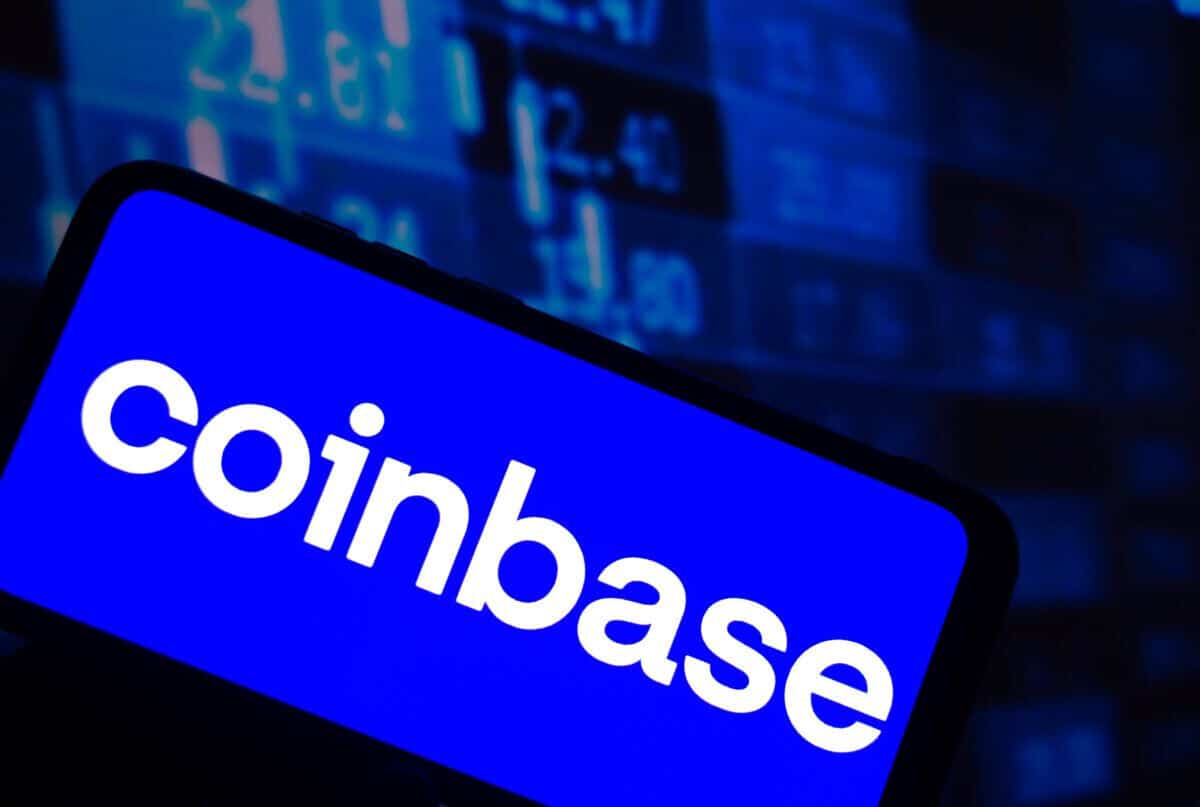
Coinbase, a leading cryptocurrency exchange, has emphasized the potential of blockchain technology to save American consumers billions of dollars in its latest “State of Crypto Report,” released on Wednesday. According to the report, consumers could have collectively saved a minimum of $74 billion in credit card transaction fees in 2022 if blockchain technology had been utilized.
Americans could have saved $74 billion in credit card transaction fees in 2022 alone by using blockchain—that’s $600 per household.
But this isn’t just about saving money. It’s about giving everyone control and ownership of their money.
Learn more: https://t.co/QjX20kXY2p pic.twitter.com/bfp4LiKJza
— Coinbase 🛡️ (@coinbase) February 7, 2024
The report highlights growing frustration among Americans with the current financial system, particularly regarding fees, with Coinbase noting that at least three in five Americans desire updates to make the system cheaper, faster, and more accessible.
Blockchain Could Save Americans Billions in Transaction Fees
According to the findings, dissatisfaction with fees charged by intermediaries for transactions tops the list of grievances among consumers and small businesses. In 2022 alone, Americans could have collectively saved approximately $74 billion in credit card transaction fees, with merchants shelling out over $126 billion for processing fees. The report suggests that utilizing blockchain technology could significantly reduce these costs, offering a more cost-effective alternative.
Using publicly available data from sources such as the Securities and Exchange Commission, the U.S. Census Bureau, and data analytics firm Statista, alongside contributions from The Block Research, Coinbase derived its findings. It pointed out that merchants spent over $126 billion on processing fees for credit card transactions in 2022, constituting their second-largest expense after labor. By leveraging blockchain technology, these fees could have been significantly reduced, potentially to negligible amounts.
Highlighting frustration over fees as a primary concern, Coinbase indicated that a significant portion of Americans are eager for updates to the financial system that would make transactions cheaper, faster, and more accessible.
The report also reveals that over 70% of Americans express a desire for an updated financial system that imposes lower fees and operates more swiftly. Coinbase sees blockchain technology as not only benefiting consumers but also businesses, highlighting its potential to revolutionize various sectors.
Coinbase Advocates for Clearer Regulations and Lower Fees
The report also highlighted Coinbase’s ongoing efforts to engage with the U.S. government, advocating for clearer regulations and enhanced accessibility to digital assets, as a custodian for numerous spot bitcoin exchange-traded funds (ETFs) launched by traditional financial institutions like BlackRock, Franklin Templeton, and Grayscale Investments.
According to data compiled by The Block and Yahoo Finance, the cumulative trading volume for spot bitcoin ETFs, introduced just last month, has exceeded $30 billion, signaling growing interest and participation in cryptocurrency investment opportunities.
In addition to its exchange services, while Coinbase has been expanding its operations globally, including in Europe, Singapore, and Brazil, the majority of its revenue still originates from the United States.
Coinbase’s State of Crypto Report, now in its third edition, aims to educate the public about the transformative potential of crypto in updating the financial system. Previous reports have revealed a significant portion of younger Americans opting out of traditional finance, and major corporations are actively exploring blockchain initiatives to remain competitive.
The study highlights how legacy financial institutions and their associated payment apps contribute to the system’s expensive and cumbersome nature. Users often find themselves paying multiple fees and enduring delays as their money traverses through intermediaries. This inefficiency has led to widespread calls for updates to the system, which prioritizes affordability, speed, and accessibility.

Coinbase, a leading cryptocurrency exchange, has emphasized the potential of blockchain technology to save American consumers billions of dollars in its latest “State of Crypto Report,” released on Wednesday. According to the report, consumers could have collectively saved a minimum of $74 billion in credit card transaction fees in 2022 if blockchain technology had been utilized.
Americans could have saved $74 billion in credit card transaction fees in 2022 alone by using blockchain—that’s $600 per household.
But this isn’t just about saving money. It’s about giving everyone control and ownership of their money.
Learn more: https://t.co/QjX20kXY2p pic.twitter.com/bfp4LiKJza
— Coinbase 🛡️ (@coinbase) February 7, 2024
The report highlights growing frustration among Americans with the current financial system, particularly regarding fees, with Coinbase noting that at least three in five Americans desire updates to make the system cheaper, faster, and more accessible.
Blockchain Could Save Americans Billions in Transaction Fees
According to the findings, dissatisfaction with fees charged by intermediaries for transactions tops the list of grievances among consumers and small businesses. In 2022 alone, Americans could have collectively saved approximately $74 billion in credit card transaction fees, with merchants shelling out over $126 billion for processing fees. The report suggests that utilizing blockchain technology could significantly reduce these costs, offering a more cost-effective alternative.
Using publicly available data from sources such as the Securities and Exchange Commission, the U.S. Census Bureau, and data analytics firm Statista, alongside contributions from The Block Research, Coinbase derived its findings. It pointed out that merchants spent over $126 billion on processing fees for credit card transactions in 2022, constituting their second-largest expense after labor. By leveraging blockchain technology, these fees could have been significantly reduced, potentially to negligible amounts.
Highlighting frustration over fees as a primary concern, Coinbase indicated that a significant portion of Americans are eager for updates to the financial system that would make transactions cheaper, faster, and more accessible.
The report also reveals that over 70% of Americans express a desire for an updated financial system that imposes lower fees and operates more swiftly. Coinbase sees blockchain technology as not only benefiting consumers but also businesses, highlighting its potential to revolutionize various sectors.
Coinbase Advocates for Clearer Regulations and Lower Fees
The report also highlighted Coinbase’s ongoing efforts to engage with the U.S. government, advocating for clearer regulations and enhanced accessibility to digital assets, as a custodian for numerous spot bitcoin exchange-traded funds (ETFs) launched by traditional financial institutions like BlackRock, Franklin Templeton, and Grayscale Investments.
According to data compiled by The Block and Yahoo Finance, the cumulative trading volume for spot bitcoin ETFs, introduced just last month, has exceeded $30 billion, signaling growing interest and participation in cryptocurrency investment opportunities.
In addition to its exchange services, while Coinbase has been expanding its operations globally, including in Europe, Singapore, and Brazil, the majority of its revenue still originates from the United States.
Coinbase’s State of Crypto Report, now in its third edition, aims to educate the public about the transformative potential of crypto in updating the financial system. Previous reports have revealed a significant portion of younger Americans opting out of traditional finance, and major corporations are actively exploring blockchain initiatives to remain competitive.
The study highlights how legacy financial institutions and their associated payment apps contribute to the system’s expensive and cumbersome nature. Users often find themselves paying multiple fees and enduring delays as their money traverses through intermediaries. This inefficiency has led to widespread calls for updates to the system, which prioritizes affordability, speed, and accessibility.
